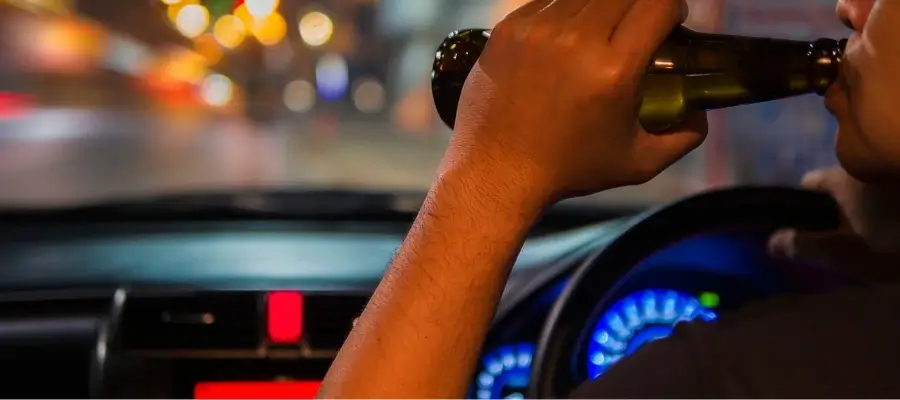|
|
Last Modified on Nov 09, 2024
Operating a vehicle while intoxicated or impaired is dangerous for the driver and others on the road. If you have been arrested for driving under the influence (DUI) or driving while intoxicated (DWI), it can be beneficial to know the Louisiana DUI laws and penalties. While it may be overwhelming, it is important to understand the severity of your situation and be aware that an arrest does not mean conviction. You may have options to avoid these penalties.
Operating While Impaired Laws in Louisiana
The offense of operating a vehicle while impaired in Louisiana occurs when you are operating any vehicle and any of the following are true:
- You are impaired by alcohol
- Your blood alcohol concentration (BAC) is 0.08% or greater
- You are impaired by any drug, drug combination, or combination of drugs and alcohol
This means you can be arrested for and convicted of a DUI or DWI even if you are under the legal limit, as long as your driving was impaired. Penalties for a conviction include fines, imprisonment, license suspension, probation, and the installation of an ignition interlock device (IID). Penalties for a DUI worsen when you have prior convictions within the past ten years. Penalties are also worse if you have an especially high BAC.
First-Offense DUI Penalties
If it is your first offense, and your BAC is not 0.15% or higher, you may face the following penalties:
- Between $300 and $1,000 in fines
- Imprisonment for between ten days and six months
If the sentence is suspended in favor of probation, then probation must meet the following requirements:
- A minimum of 48 hours in jail or a minimum of 32 hours of community service
- Court-approved substance abuse program, potentially including professional assessment for substance abuse
- Court-approved driver improvement program
- Prohibition from operating a motor vehicle for the length of probation but not less than six months unless an IID is installed
If you had a BAC between 0.15% and 0.20%, there is a minimum sentence of 48 hours without parole and a license suspension for two years. If your BAC was 0.20% or higher, fines increase to between $750 to $1,000 in addition to the 48-hour requirement and two-year license suspension.
Second-Offense DUI Penalties
For a second offense within the prior ten years, basic penalties may include:
- Fines between $750 and $1,000
- Imprisonment for between 30 days and six months
- A minimum of 48 hours of this sentence is served without parole
If the remaining sentence is substituted for parole, then parole must meet the same requirements as a first-offense probation sentence, except with 15 days in jail or 240 hours of community service as a requirement.
If your BAC was greater than 0.15%, you must serve a minimum of 96 hours, and your license will be suspended for a minimum of four years. If your BAC was greater than 0.20%, fines increase to $1,000. There are additional penalties if your second offense DUI happens within one year of your first DUI.
Third-Offense DUI Penalties
This offense is a felony. A third-offense DUI results in the following penalties:
- Fines of $2,000
- Imprisonment for between one and five years, with or without hard labor
- Seizure of a vehicle, if pursued by the prosecution
One year of the sentence must be served without parole or suspension unless you are accepted into a drug diversion program. Probation has several requirements, including 240 hours of community service.
Fourth-Offense DUI Penalties
A fourth DUI offense within ten years can result in the following penalties:
- $5,000 in fines
- Imprisonment between ten and 30 years, with or without hard labor
- Seizure of a vehicle, if pursued by the prosecution
Two years of the sentence must be served without parole except in cases where specific criteria are met.
FAQs
Q: What Is the Penalty for Your First Time DUI in Louisiana?
A: For your first-time DUI in Louisiana, you could face the following penalties if your BAC does not reach 0.15%:
- Fines between $300 and $1,000
- Between ten days and six months of imprisonment
- Probation if the minimum sentence is suspended, where the following criteria must be met:
- Either 48 hours in jail or 32 hours of community service
- Participation in a court-approved substance abuse program and a driver improvement program
- Suspension of ability to operate a motor vehicle unless an IID is in the vehicle
Q: What Are the New DUI Laws in Louisiana?
A: Some of the changes to DUI laws in Louisiana in 2024 included changes to the IID requirements and driver’s license suspension requirements. Now, there are longer requirements for how long an IID must be installed for. These license suspension requirements apply to situations where a driver is arrested and has a designated period of time to schedule an administrative hearing to prevent automatic suspension. This update to law would make potential suspensions longer.
Q: How Long Do You Lose Your License for a DUI in Louisiana?
A: Loss of license for a DUI in Louisiana depends on your BAC and if you have any prior DUI offenses. If it is a first offense, and you did not have an aggravated BAC, you may only be suspended for the minimum period of six months while you complete probation or use a restricted license with an IID in your vehicle. If your BAC was 0.15% or higher, your license will be suspended for two years.
Q: How Many Repeat DUI Charges Are a Felony in Louisiana?
A: A third-offense DUI conviction is considered a felony in Louisiana and results in between one and five years imprisonment, with or without hard labor. This felony offense is compared to the misdemeanor second-offense DUI, which results in 30 days to six months imprisonment. A third-offense DUI means you have had two prior DUI convictions within the past ten years. Specific circumstances must be met to suspend the mandatory minimum sentence for felony DUIs.
Finding a DUI Attorney to Protect Your Rights
While it can be incredibly scary to deal with criminal charges, charges are not the same as conviction. You may still have options to mitigate the criminal penalties you face. A skilled attorney can help protect you and find the ideal outcome in your DUI case. Contact The Law Office of Joshua S. Guillory today.




